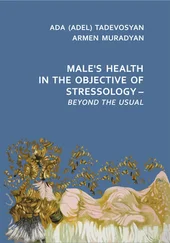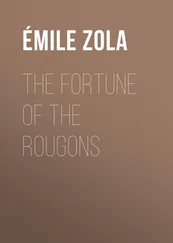He went slowly, with heavy steps, around the back of the courthouse. He felt old, and everyone who passed him seemed young. His briefcase hung heavily, as though made of lead. If he hadn’t been embarrassed to do so, he would have put it down for a moment, like a porter taking a respite from a heavy load.
On Sfinţii Apostoli, past Apolodor, he was surprised to glimpse a completely unexpected event a few steps from him: hanging boyishly from the bars of a wrought-iron door, through which a few tall lilac branches passed, was a girl struggling to break a branch.
Paul stopped on the spot, afraid of startling her, and hid behind a street lamp, from where he could watch without being seen. He might have taken her for a schoolgirl had she not been dressed with the elegance of a lady. She wore a grey suit, a grey hat with a white brim, white antelope pumps. Below, on the door’s stone ledge, a handbag of the same antelope skin as the pumps had been discarded to allow her to keep her hands free.
Paul recognized her without difficulty as Ann, although he found it difficult to believe that it was she. Reaching up on the toes of her pumps on the stone ledge, one hand gripping the bars of the door, with the other she fought to grasp the lilac branch, which was beyond her reach. The skirt of her suit slid up above her knees, a rounded, delicate pair of knees that could have belonged to an adolescent girl. The street was empty, although from one moment to the next someone could come along, even if it weren’t the owner of the property that was being plundered. The branch gave way at last, a large branch with dense, violet bouquets. The girl jumped onto the sidewalk, without hurry, without emotion, shook the sleeves of her jacket down to her wrists, picked up her handbag, looked up the street, then finally, with the lilac branch in her arms, with her blond head concealed among the flowers — although her high forehead poked up above them — she set off boldly up the street with her small, decisive steps.
Paul watched her move away and it seemed to him as if a train of light hung in her wake. He, too, felt younger. The season, about which he had forgotten, came back to him. The girl’s slight craziness had brought a little light into his day. He would have liked to rush after her to thank her, to kiss her hand; but her let her cross unimpeded at the corner and disappear. Even so, he felt the need to send her a word of warm greeting, the first since he had met her. He remembered that nearby, in Piaţa Senatului, there was a florist. He went in and bought all the lilacs he could find, to the astonishment of the sales clerk, who told him, certainly without irony: “If you need any more, we can get them for you.”
Furthermore, they were unexpectedly cheap, and with the few hundred lei he had left, Paul bought the whole garden and sent it to Ann, leaves and all, along with a few words written in haste on the back of his business card: Next time you want lilacs, be more careful. If you need a lawyer (articles 306 and 308 of the penal code: “He who takes in a concealed manner an object belonging to another commits theft. Theft is punished with a prison term of between 15 days and two years…”) I am at your disposal .
“You don’t know how ashamed I am,” Ann said to him two days later, receiving him at her home. “If I’d known you were watching me, I would have died of mortification on the spot, with my hands on the door. You’re a man I’ve always been a little afraid of. I don’t know why: don’t ask me why.”
The apartment was full of lilacs that had been delivered the previous evening. Those that didn’t fit in the flower vases had been placed in jugs of water, in glasses, on the table, on the shelves, in the window.
“I’ll always keep them here. When they wither, I’ll put others in their place. And it’s possible they won’t even wither.”
She wore a simple navy blue dress with a white collar, which gave her the appearance of a schoolgirl.
“Are you really that young?”
“Are you really that old? I’m afraid of you. I’ve always been afraid of you. You’re so gloomy, so absent! When you say hello to me on the street — and you don’t always say hello — I have the impression that you don’t even see me.”
She spoke quickly, seemingly afraid of his silence. She raised her hands to her breast in order to suppress her gesticulations, a tactic which only gave her once more a school-girlish air.
“It’s difficult for me to believe you’re here. I’ve thought so many times that you might possibly come, but I’ve never dared to hope for it. I know so many things about you. I know the books you read. I know who you went to Balcic 8with last summer. I know that last Thursday evening you went to the Philharmonic orchestra and left during the intermission. Don’t you want us to be friends? Don’t you want to try? So many times, when I’m painting something, I wonder: would he like it? So many times I read a book and I wonder: what would he think of it? I’d like to see you more often. I don’t like my extravagant gestures, how I don’t sound serious when I talk. I’d like you to think I’m less scatterbrained than even-handed, less superficial… I promise you I’ll be a good girlfriend. I won’t pry, I won’t nag. Come over whenever you want. Or, better yet, let’s set a day for you to come over every week. We’ll try it for a little while. If it works — good; if not, we call it quits.”
In their memory of that day, the lilac remained their flower.
Later, in the winter, Paul stopped with amazement on a January day in front of the window of a flower shop, where he glimpsed a few white lilac branches. He hadn’t realized until then that it was possible to find them in the middle of winter, and the sight behind the frozen window pane struck him as unreal. He stroked it with delicacy, as though afraid that it would come apart beneath his fingers. The white winter lilac didn’t have the violent aroma of the spring variety, but rather a faint, extinguished odour, like breath or smoke.
When they quarrelled it was their habit to send or receive a lilac branch because in that way, without words or explanations, the rift of several days would come to an end. Both of them regarded the lilac as a superstition that disarmed them, that helped them rediscover each other. He could not suspect then that another Ann would exist, one for whom those flowers would lose all meaning, like an object without a name, without memories.
The first days of their love had taken place in Sibiu, a city neither of them knew.
“I don’t care where, my dear. Somewhere where I can be alone with you for a few days. Anyway, after that you’ll leave me.”
“Why?”
“Because you don’t love me.”
He responded neither yes nor no — and, in any event, she did not seem to expect a reply.
They had chosen Sibiu at the last moment, in the station, because the next departure was for Sibiu.
Everything delighted her in the Transylvanian city: the broad streets, the shop windows, the German signs, the Saxon dialect, lunch at the restaurant, the menu with types of food she didn’t know and which she chose at random, closing her eyes and placing her finger on the menu: “Let’s see what this is like.”
In the mornings, when she woke from her slumber, she liked to look out the hotel window at the children walking to school with their satchels on their backs, the gleaming Saxon women who returned from the market with their baskets in their hands and stopped on the street corners in groups of three or four, speaking with passion, the shutters of the shop windows that rose with a rattle… Everything struck her as honourable and severe.
“We’re the only people in this city who are in love,” she said.
Читать дальше












